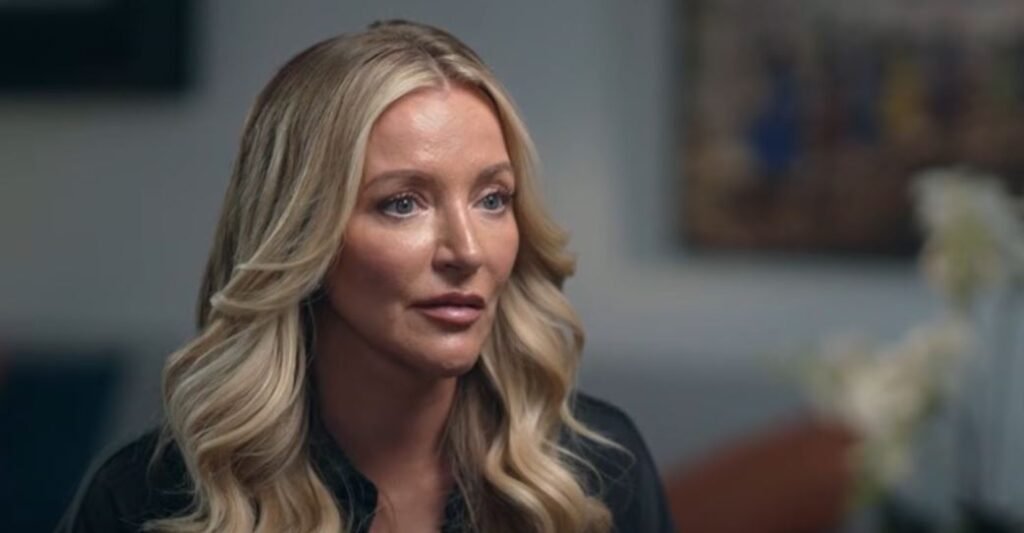
Michelle Mone launched Ultimo in the late 1990s from the unlikely backdrop of East Glasgow, driven by a remarkable combination of sales savvy and unwavering ambition. She famously dropped out of school at the age of 15 and entered the workforce as a model and promotional assistant after being born into poverty and growing up in a one-bedroom apartment. She transformed a bad experience with uncomfortable bras into a multimillion-pound business idea by using astute marketing. Her Ultimo bra, which was made for comfort and enhancement, attracted attention on store floors, especially at Selfridges, where her surprise offer miraculously closed a deal.
Mone has handled difficult changes over the last 20 years with both audacity and controversy. She assumed complete control of the lingerie company after divorcing her first husband, Michael Mone, and sold the majority of her shares in 2014. Despite Ultimo’s audacious public persona, financial documents revealed that the company never made more than £10 million a year, raising questions about the company’s overall track record of steady success. However, her media appearances and brand recognition significantly increased her influence and personal worth.
Michelle Mone Biography and Career Summary
| Category | Details |
|---|---|
| Full Name | Michelle Georgina Mone, Baroness Mone, OBE |
| Date of Birth | October 8, 1971 |
| Age | 53 years |
| Place of Birth | Dennistoun, Glasgow, Scotland |
| Spouse | Doug Barrowman (m. 2020), Michael Mone (divorced) |
| Children | Rebecca, Declan, Bethany |
| Education | Left school at 15, no formal qualifications |
| Career Start | Marketing role at Labatt Brewing, founded MJM International in 1996 |
| Major Ventures | Ultimo Lingerie, TrimSecrets, Ubeauty Global, Equi, PPE Medpro |
| Political Role | Conservative Peer in House of Lords (on leave) |
| Estimated Net Worth | $120 million (approx. £88–£102 million) |
Her later business endeavors were strikingly diverse, ranging from fake tan products to weight loss supplements, all of which were promoted with distinctive flair. Dieticians criticized TrimSecrets, a pill she claimed helped her lose weight without exercising, for lacking scientific backing. Despite her denials of ownership during crucial promotional periods, she actively promoted it, sometimes using her official Baroness social media accounts.
Michelle Mone garnered enough political attention by 2015 for then-prime minister David Cameron to appoint her to the House of Lords. As a businesswoman who had risen to the top despite facing social and economic obstacles, her appointment was framed as symbolic. Opposition benches and the business community, however, criticized it as an unusually early honor, pointing out that her businesses lacked financial substance.
The story took a darker turn during the pandemic. Mone made the remarkably audacious decision to pressure ministers into awarding government PPE contracts to a company called PPE Medpro, which subsequently secured deals worth £200 million. Although she initially denied any involvement, an increasing amount of documentation, including bank records, emails, and texts, showed that she and the company had close financial and operational ties. She acknowledged in late 2023 that she and her family benefited from offshore trusts connected to PPE Medpro’s £60 million earnings. This had a significant effect on public trust, leading to legal action from the UK government and the freezing of assets valued at around £75 million.
The government filed a £122 million breach of contract lawsuit against PPE Medpro, claiming that the surgical gowns they received were faulty and unusable. The National Crime Agency simultaneously looked into the procurement process through criminal investigations. Amazingly, a lot of this happened while Mone and her husband were launching a counteroffensive in public relations, which included a self-funded documentary that sought to reframe the scandal. This endeavor was severely hampered, though, when participants in the movie admitted they were unaware that PPE Medpro was funding it.
Mone has positioned herself as a victim of political scapegoating by arguing that her actions were not unlawful despite her growing legal troubles. Her story has consistently centered on her devotion to her family and her conviction that her business intuition was merely misinterpreted or misrepresented. Public records, however, still show a much diminished political presence—just a few House of Lords speeches since her peerage, and protracted absences that have been criticized.
The public’s response to Mone’s story is still very divided. She is seen by some as a symbol of the perils of combining business aspirations with political access without adequate regulation. Others continue to view her as a tainted representation of self-made success. Her experience has spurred more general discussions about offshore finance, ethical procurement, and appointed peers’ accountability.
What is especially noteworthy is that Michelle Mone’s net worth continues to show significant gains even while she is being investigated. Property holdings, offshore trusts, previous brand revenues, and high-profile speaking fees are all included in the estimated $120 million that is attributed to her portfolio. She reportedly charges up to £20,000 for motivational speaking events alone. A complex picture of contemporary entrepreneurial influence is painted by this financial resilience in the face of legal pressures and reputational harm.
Mone established herself among the political and business elite of Britain by using the media strategically and lobbying vigorously. Unquestionably, that trajectory has changed—her reputation has been severely damaged, her peerage is under scrutiny, and her Conservative membership has been canceled. However, her story keeps changing, a tale influenced by both aspiration and the fallout from unbridled ambition.
It’s especially amazing how she managed to keep up a financial empire in the face of court cases, freezing orders, and harsh public criticism. It reflects a larger social discussion about how political connections, media access, and charisma can have a big impact on financial results, sometimes even in the absence of underlying product quality or public interest.
